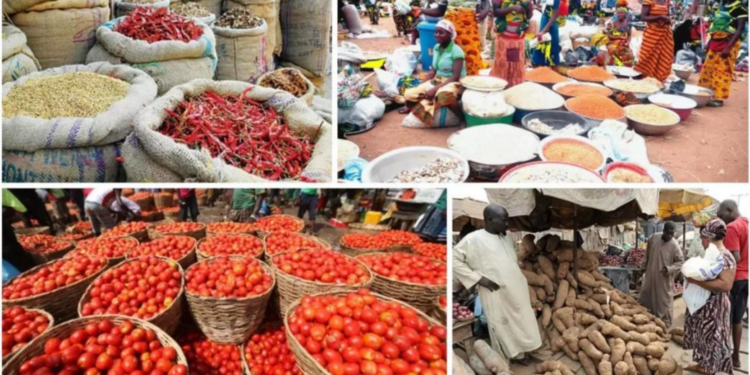Simple, it is cheaper. Food is cheaper in your village.
So why is the same bag of gari more expensive in my city than in the village? There are many factors, but two come to mind.
- The population in your village is smaller. Thus, the agricultural yield in the town is sufficient for the population; supply meets demand, and prices do not rise.
- The garri is not transported out of your village; thus, the cost of transporting over long distances is eliminated.
So, what if those farmers in every village in Nigeria could “export” their output to the towns cheaper and faster via efficient logistics? Well, this will mean the prices of food fall in the cities.
Stretching this line of thought further, does this mean the government can print trillions of Naira, invest in roads, railways, and irrigation projects, and boost agricultural yield? Thus, causing food prices to fall.
The answer is yes; an increase in yield will increase the food supply, thus causing food prices to fall.
What about inflation?
The increase in the prices of food in Nigeria drives inflation. According to the Nigerian Bureau of Statistics in the latest inflation report for December 2023, Food and Non-Alcoholic beverages contributed 14.98% year on year to the Consumer Price Index (Housing and Utilities are next with 4.84%)
Thus, if Nigeria can reduce food prices, it has an excellent chance to minimize headline inflation in Nigeria.
Thus, lower food prices will eat up some inflation caused by the monetary expansion but not all of it; remember, food is 51% of CPI, which measures inflation in Nigeria.
Inflation is monetary but also supply-driven.
If Nigeria does not print a kobo and pegs her currency to gold, not complete faith in the ability to reply but Nigeria fails to have enough food to feed its growing population, then the supply of food to the economy falls, food prices will rise; notice no new currency was printed, monetary expansion did not happen.
Thus, there is an argument around printing trillions of currencies (aka borrowing massively) to build the infrastructure in Nigeria that enhances productivity.
For instance, if Nigeria printed N10t and connected all states with rails and ten-lane highways, this would decrease the cost of doing business in Nigeria.
Prices would fall in the long term because cheap food from the fields could then be transported to the cities, reducing inflation.
Nigeria can only reduce inflation by reducing the cost of food. The cost of food in Nigeria can be reduced by lowering the cost of doing business in Nigeria by investing in infrastructure to enhance productivity.
If infrastructure is built to enable the harvest to flow cheaper from the fields to the cities, that is a positive step.
Printing money is borrowing, creating a fiscal hole in the future, but borrowing is beneficial if directed at building projects that enhance commerce and reduce costs; in other words, borrowing is good if it can pay for itself, especially for food.
















This is dangerous!